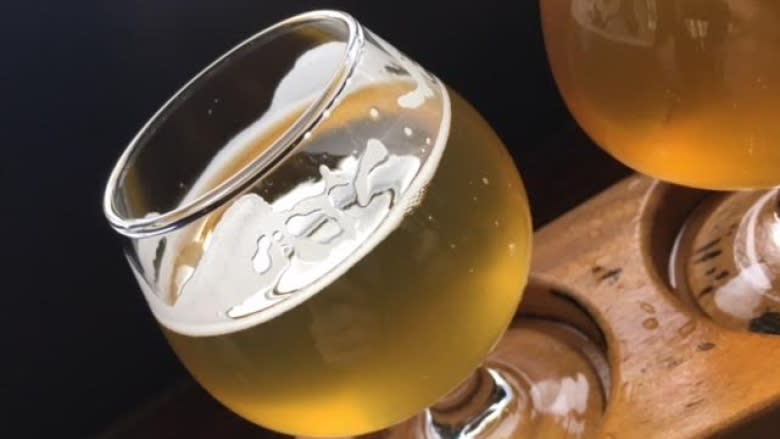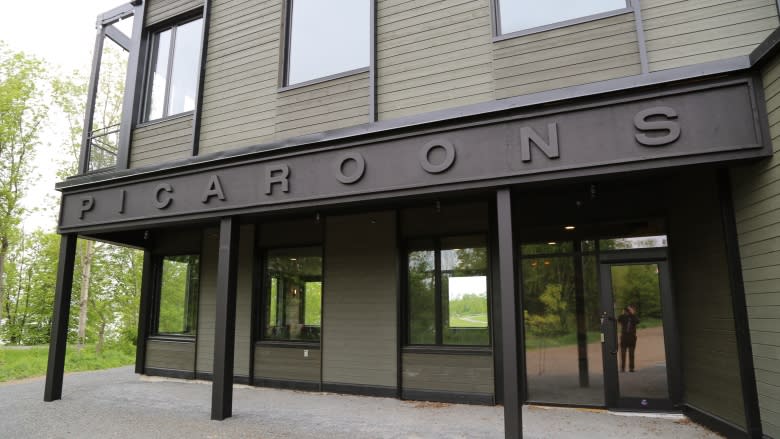Duty free shop frustrated it can't sell craft brews
The owner of a duty free shop near the Houlton, Maine, crossing says he's having trouble getting local craft beers into the hands of people at the border.
John Slipp, whose shop is in the Atlantic Travel Centre, said he sells beer from bigger breweries such as Molson or Moosehead.
But he's not selling any craft brews, even though many Canadians and Americans look for them.
"We see Americans who have been visiting the area and who have enjoyed [a] craft brew in the communities in New Brunswick … coming in and looking for that beer they enjoyed while they were here," said Slipp, a business owner from Woodstock.
"It is a very valid question to say, 'OK, we can sell Moosehead beer made in New Brunswick but we can't sell craft beer made in New Brunswick? Why is that?'"
Slipp said everyone would benefit from selling brews from smaller producers at duty free shops.
"By working with these local producers, you create the opportunity to grow the sales of that local product," he said. "If the sales grow, the benefit is not only to the retailer, the manufacturer, but also NB Liquor."
Slipp said breweries such as Picaroons Traditional Ales in Fredericton have pitched the idea of selling their products at the duty free shop near Maine but were turned down by NB Liquor.
- Province celebrates craft brewers but doesn't let them grow, industry says
- NB Liquor implements new policies for craft beer producers
But Mark Barbour, a spokesperson for NB Liquor, said the issue is not about which producer can sell at the border but about whether a producer is set up to do it.
Barbour said mainstream breweries participate in a direct delivery beer program, through which the corporation and bigger breweries exchange documents electronically.
He said the paperless program allows the corporation to track orders, shipments and payments with ease and also helps it organize its business with third parties, such as duty free shops, which are not part of the Crown corporation.
Not able to take part
When NB Liquor first adopted this as its standard for organizing sales, it was a very expensive program and craft brewers decided not to participate "due to the cost of implementation or the sophistication of their own IT capabilities," he said.
"So right now when we work with the craft industry in New Brunswick, it's a paper system," he said, adding that one of the negatives to this is "there's no way to do direct delivery with ease with our third partners for such duty free stores."
He said there is no rule against making business transactions on paper, but that's how NB Liquor is set up internally.
"And so this industry is very new," he said. "It's developing rapidly, I think it's a piece of element that we weren't aware of until it really become recent that the explosion of the craft industry is really there.
"So it's not that they are not allowed, it's just that there's no infrastructure in place for them on their end to do it."
He said the corporation does not store beer products in its warehouses, and therefore also does not directly organize shipments to the duty free shops. The breweries deliver their product.
Barbour said NB Liquor is now working with craft brewers on finding a solution by using another form of electronic-document sharing system.



